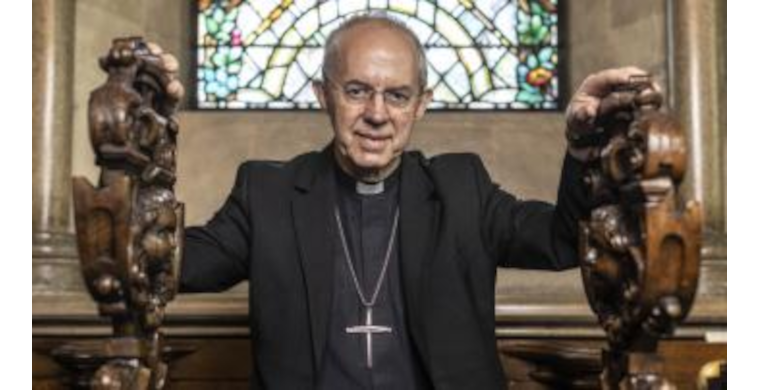A POST-CANTERBURY ANGLICANISM?
By Chris Sugden
Church of England Newspaper
August 4, 2022
What has been happening so far at Lambeth 2022? Despite Archbishop Welby's desire that the conference should not be about sex, Lambeth 1.10 has kept recurring and being fought over.
Originally affirmed in the Lambeth Call on Human Dignity, it was watered down following shouting from those offended by it, and now subject only to 'acclamation'. The Global South Primates have focused on engaging with Archbishop Welby about asking the conference to affirm Lambeth 1.10. Many orthodox bishops twice abstained from taking Holy Communion over the issues of sexuality and held their own separate communion service on campus.
Archbishop Welby, while personally supportive of Lambeth 1.10 has spoken of the Communion as a messy family having arguments like any other. Archbishop Justin Badi of South Sudan recalled that Jesus defined the Church family not like any other family but composed of those who do will of his Father (Matthew 12:49). He linked the Anglican Communion with taking Holy Communion together, thus explaining their inability to take communion with some of the bishops present.
There is a remarkable lack of continuity with the past, as though all that has happened since 1998 is of no significance. The studies and reports produced since then are not referred to.
But is the need to affirm Lambeth 1.10 central to the challenges which Bishops from Africa and Asia know need to be addressed only too well: persecution particularly from Islam, poverty and the threat of famine, debt and corruption? It has been shown that for poor people addressing these issues, religion is a primary resource.
Such bishops represent 75% of the membership of the Anglican Communion. Yet they are having to speak of themselves as a 'faithful remnant' who will never leave Anglicanism. They found when they arrived at the Conference venue at the University of Kent that the university staff and students held a 'Pride' march in which some western bishops took part. They were asked to sign a university form about respecting different sexualities when they insisted they did not respect them but profoundly disagreed with them. The control of the venue and the agenda of the conference is not in their hands. They feel to be perpetual guests who need to be on their best behaviour.
Justin Welby has spoken of Canterbury as the emotional heart of the Communion. Vinay Samuel, one-time general secretary of EFAC, gives another take on history. About the time that Anglican missionaries were spreading throughout the world, courtesy of the British empire and navy, Brits were building railways in India. These include some fantastic feats of engineering. They are the best of the British heritage. Indian Railways are now completely independent of Network Rail in the UK. They carry 23 million passengers a day. If they were still tied to Network Rail they would be mired in its current round of strikes and debates about rebuilding a national framework of all the different train companies.
Canon Samuel, a canon of St Andrew's Cathedral Kabare, Kenya, argues that Africa is now the actual heart of Anglicanism. It is the dominant Christian denomination in Nigeria and of great significance throughout East and South Africa. All the African Provinces should call a Pan-African Anglican Congress. He proposes that to maintain their catholic and apostolic roots and heritage consistent with biblical faithfulness they should develop fraternal links with those who share 'ex animo' the same catholic and apostolic tradition and maintain the catholic faith.
Anglicanism is after all a reformed catholic tradition. Pope Francis and Metropolitan Bartholomew of the Orthodox family of churches should become close partners and supporters in maintaining recognizable Christian teaching on faith and morals. Those seeking to revise Christian teaching to align with current western secular culture and its totalitarianism will not change. Their predilections should not divert Anglicans in Africa from addressing with the full range of Christian teaching and practice the problems that are the daily challenges for their people. These do not include the imperialistic agenda of woke culture now being imposed on them through the institutions (such as the University of Kent and the Church of England) which have been so successfully infiltrated by it.
This would still be Anglicanism, but post-Canterbury in its emotional and institutional heart.
END














